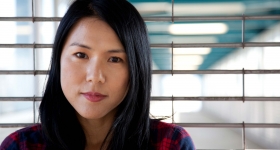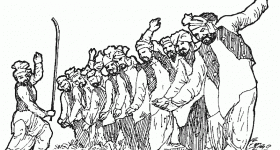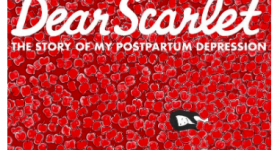Beauty has a language all its own, and every culture speaks a different dialect. In Taiwan, my temporary home, navigating the impossible beauty standards can feel as dangerous as weathering the typhoon season.
Due in part to the diversity within Taiwan itself, where many of the older generation speak Taiwanese, Japanese, or even aboriginal Hakka, this country battles with racial prejudice and restrictive beauty ideals. This contrasts with an overall warmth that, amazingly, transcends age, heritage, or language spoken. No lost visitor is ever left unattended to, no hospitality withheld.
Our scholarship group represents a diverse group of Americans, though in my experience, many locals will latch onto the whitest-looking of the bunch to strike up a conversation. Asian Americans’ experiences are often dismissed or left unacknowledged. Just as in America, we’re often left invisible. I’ve heard everything from “Well, you’re just Chinese” to “Oh, you must be local.” It can be draining to be perceived this way, to have my experiences dismissed altogether. Waiters will look at me to translate their questions, even when many other friends speak fluent Chinese without looking like they do.
Three of the best Chinese speakers in our group happen to be African American or white, but these individuals will often be treated with the least concern. My African American friend has been scrutinized for “not being American," with locals telling her that she “must be from Africa” or telling her skin is “too dark to be American.” One even told her, “We only like white skin here.” I have also witnessed locals admiring white teachers, complimenting their pale skin and telling them how beautiful their eyes are. An incredible amount of value is assigned to complexion here, more explicitly than in the United States. When our group goes out for dinner, many locals will blatantly stare, especially if someone is white or African American.
In Taiwan, advertisements praise the “before” and “after” shots of double eyelid surgery, circle lenses, and eyelash extensions. Even the convenience stores, like Family Mart and 7-Eleven, will sell whitening or “brightening” products that contain bleaching agents. Locals hold UV-blocking parasols when walking. Those who use scooters are often decked out in a full helmet with a sun visor, long sleeves, and a cardigan in 100-degree weather. Several of these practices extend from an appreciation of celebrities, who endorse everything from cellphones to household appliances. These glorified celebrities look incredibly and uniformly skinny, with their ghostly pale complexions and larger eyes.
While many naturally have wider eyes in Asia, those with smaller eyes are often discriminated against. Students who might be a little larger or darker than the ideal can be ostracized in the classroom. I have seen an advertisement in the Xinmen district of Taipei showing “before” shots featuring normal, albeit shy or timid-looking individuals. However, in a growing global culture in which job recruiters can scrutinize a LinkedIn profile or request photos with an application, many might see surgery as a necessary and even marketable asset.
As an advocate for natural beauty and someone who suffered from severely low self-esteem in high school, I wish I could buffer myself from the influence of all the weight loss and surgery clinics on every corner. In the U.S., I was bullied for being Asian, so I traded in glasses for circle lenses and ditched my monolids for eyelid tape and fake eyelashes. I would spend hours fixing my makeup in an attempt to avoid bullying. I wonder if many of the people I see here with doll-like eyes and super-long eyelashes experienced a similar fate in school. Perhaps they felt pressured by their peers -- or were influenced by Kpop celebrities -- to think themselves unattractive.
This dissatisfaction with our own bodies and faces is not limited by country borders. To appreciate the beauty in others, we must find value in ourselves. What will it take to cut off the booming circle lens companies and convince young girls and boys that their eyes are perfectly fine as they are? What will it take to stop people from going under the knife in pursuit of an impossible beauty ideal? Observing how many people have treated members of our diverse group here in Taiwan as either outsiders or glorified foreigners, it’s hard to say how quickly reform may come. Perhaps the first step is to look in the mirror, to stop criticizing and to start finding new ways to open our eyes to beauty.









Comments